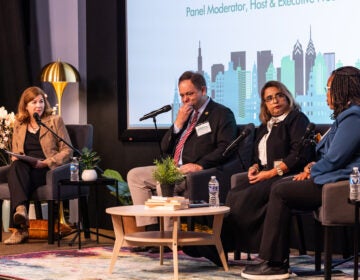Bill would expand ‘livable wage’ mandate
Under a bill put forth by Councilman Wilson Goode Jr., anyone who leases from a business getting a Philadelphia subsidy would also have to pay a higher wage.
Picture a strip mall in Philadelphia. In that strip mall is a store, owned by a guy we’ll call Mr. Retailer. Now, the developer of that strip mall — let’s call him Mr. Developer — may have gotten a city subsidy for the project. In doing so, Mr. Developer agreed to pay his workers a — quote — livable wage: or 150 percent of the federal poverty line, which translates to just under $11 an hour. If Councilman Wilson Goode Jr. has his way, Mr. Retailer would also have to pay the higher wage.
“It makes sense that if for the purpose for tax dollars being used a subsidy is to create permanent jobs that those jobs not be poverty wage jobs, but be more livable wage jobs,” said Goode.
Under a bill put forth by Councilman Goode, anyone who leases from a business getting a Philadelphia subsidy would also have to pay a higher wage. His reasoning? Businesses renting the space are also benefitting from the city subsidy.
Temple Law Professor Jan Ting says those higher wages may drive businesses out of town.
“There is a tradeoff,” Ting said. “You can improve the lives of some people incrementally, but at a cost of reducing the number of new jobs that are created, and so which way does council want to go?”
Councilman Goode notes the bill exempts small businesses, with gross receipts of less than $1 million a year.
The bill quietly made its way through the legislative process and could come up for a final vote Thursday.
WHYY is your source for fact-based, in-depth journalism and information. As a nonprofit organization, we rely on financial support from readers like you. Please give today.




